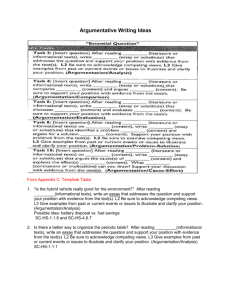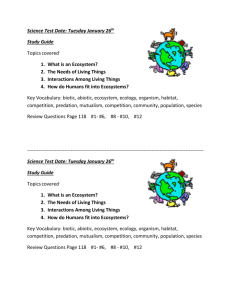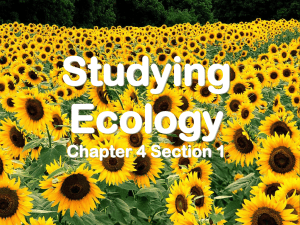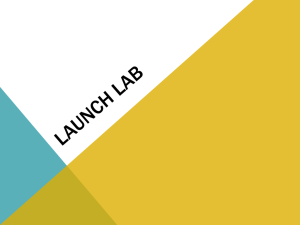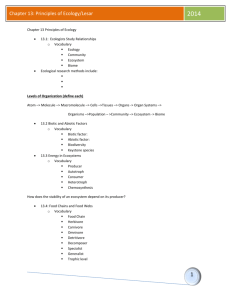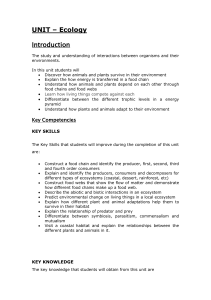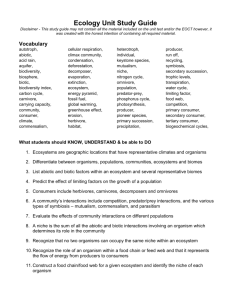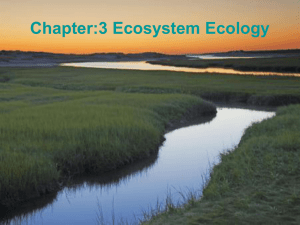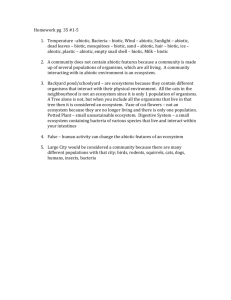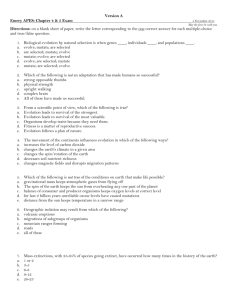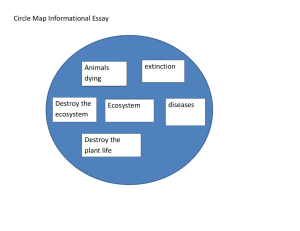Unit 4: Ecology—Study Guide Essential Vocabulary: abiotic, biotic
advertisement
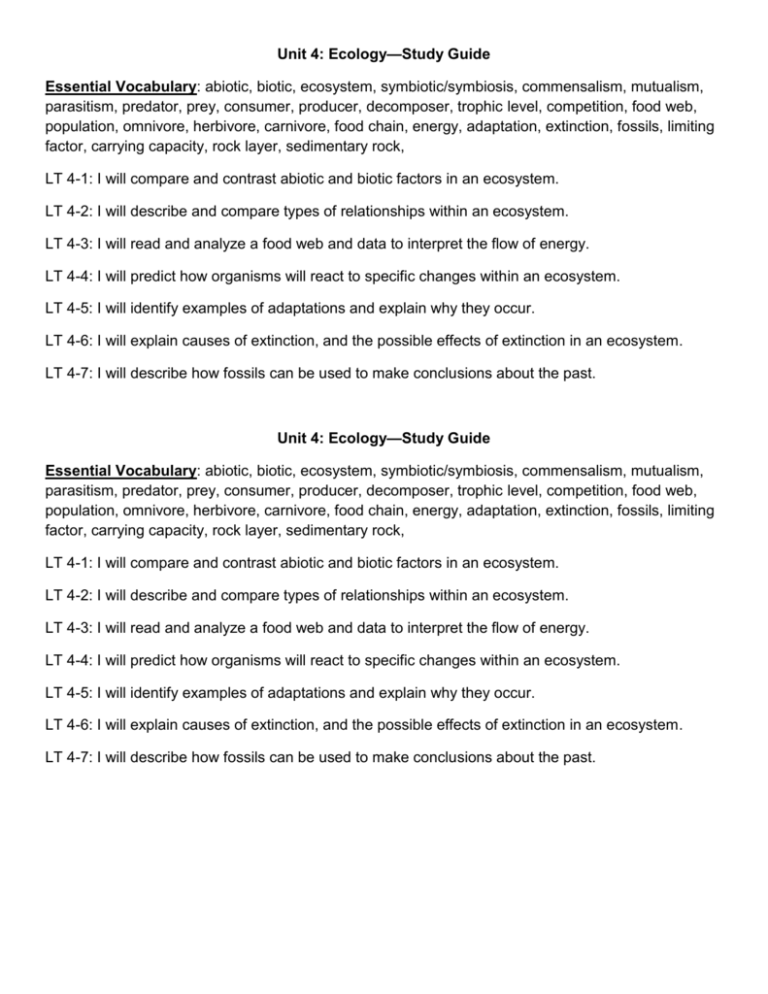
Unit 4: Ecology—Study Guide Essential Vocabulary: abiotic, biotic, ecosystem, symbiotic/symbiosis, commensalism, mutualism, parasitism, predator, prey, consumer, producer, decomposer, trophic level, competition, food web, population, omnivore, herbivore, carnivore, food chain, energy, adaptation, extinction, fossils, limiting factor, carrying capacity, rock layer, sedimentary rock, LT 4-1: I will compare and contrast abiotic and biotic factors in an ecosystem. LT 4-2: I will describe and compare types of relationships within an ecosystem. LT 4-3: I will read and analyze a food web and data to interpret the flow of energy. LT 4-4: I will predict how organisms will react to specific changes within an ecosystem. LT 4-5: I will identify examples of adaptations and explain why they occur. LT 4-6: I will explain causes of extinction, and the possible effects of extinction in an ecosystem. LT 4-7: I will describe how fossils can be used to make conclusions about the past. Unit 4: Ecology—Study Guide Essential Vocabulary: abiotic, biotic, ecosystem, symbiotic/symbiosis, commensalism, mutualism, parasitism, predator, prey, consumer, producer, decomposer, trophic level, competition, food web, population, omnivore, herbivore, carnivore, food chain, energy, adaptation, extinction, fossils, limiting factor, carrying capacity, rock layer, sedimentary rock, LT 4-1: I will compare and contrast abiotic and biotic factors in an ecosystem. LT 4-2: I will describe and compare types of relationships within an ecosystem. LT 4-3: I will read and analyze a food web and data to interpret the flow of energy. LT 4-4: I will predict how organisms will react to specific changes within an ecosystem. LT 4-5: I will identify examples of adaptations and explain why they occur. LT 4-6: I will explain causes of extinction, and the possible effects of extinction in an ecosystem. LT 4-7: I will describe how fossils can be used to make conclusions about the past.

